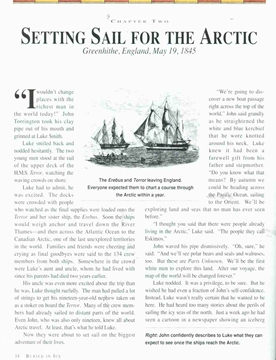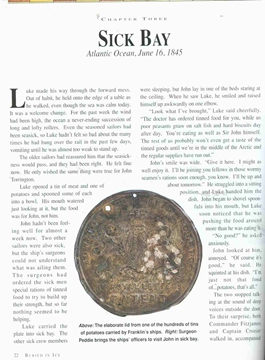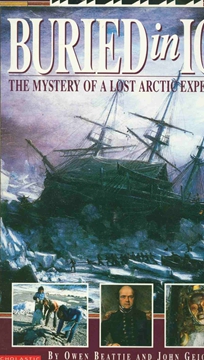Nonfiction: history. Owen Beattie is an anthropologist who thinks he knows what happened to the famous expedition led by Sir John Franklin in the mid 1800's. Sir John was sure that he would be able to discover the ever illusive Northwest Passage, a route that would make it possible for Europeans to travel to China across the top of Canada. So, in 1845, Sir John set out with two ships, the Erebus and the Terror. The ships were fitted with the best technological advances of the time and everyone was sure that Sir John would succeed where so many failed before him. Instead the two ships got frozen in the ice and block of the crew members came home. An enormous rescue mission was launched and even when it was clear that everyone on the ships must have died, explorers still went out looking for answers as to what had happened on that ill-fated voyage. Now, all these years later Owen is hoping that he will be able to prove once and for all that the expedition had been doomed from the start and the cause was a very simple one - poisoning. Sir John's crew all ate food from cans, cans which had been soldered shut with lead. The lead would have made the crew sick and weak. It would have made them behave irrationally and would have impaired their ability to make sound decisions. Finally the lead in their bodies would have killed many of them. By describing Owen's own experiences and by also telling the story of the Franklin expedition from the point of view of one of the crew members, the authors of this excellent book bring the whole extraordinary tale to life. Period photographs and photographs of artifacts from the two ships, along with maps and illustrations help the reader see the journey and try to be a detective reaching into the past to find out what happened all those years ago. Though this is undoubtedly a tragic tale, it is a fascinating one, as we are able to see how scientists today can discover intimate details about people who died long ago.


|



















